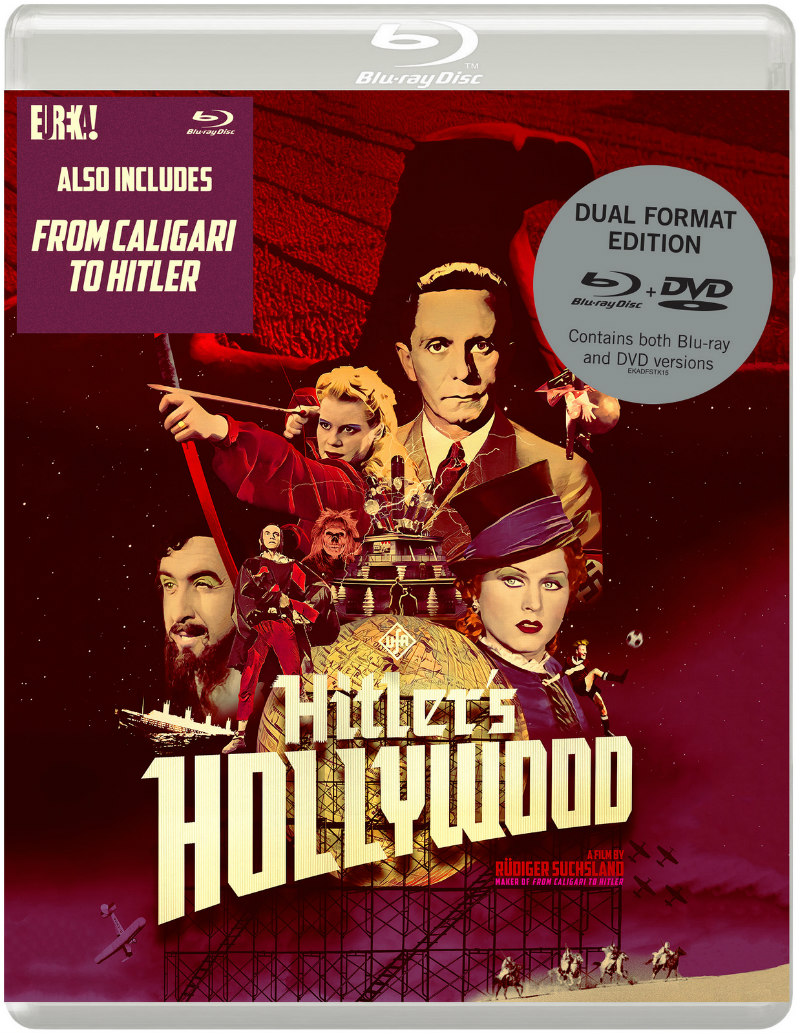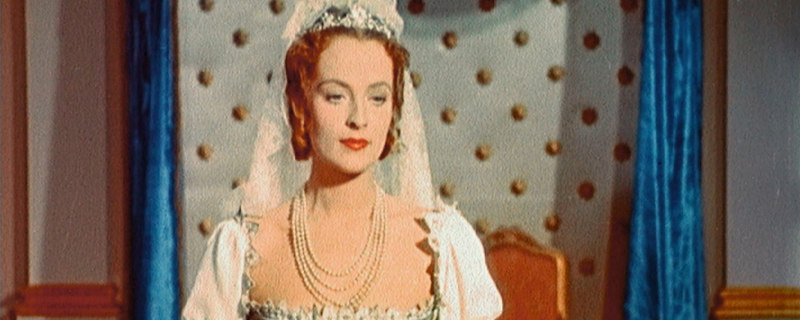
Documentary examines German cinema during the Nazi era.
Review by Eric Hillis
Directed by: Rüdiger Suchsland

A followup to his 2014 documentary From Caligari to Hitler (included as a bonus feature on Eureka's disc!), director Rüdiger Suchsland’s Hitler's Hollywood takes a look at the impact of the Nazi regime on German cinema over its 12 year reign from 1933-45.
In the silent era, Germany had led the world with its cinema, with movies like Metropolis, The Cabinet of Dr. Caligari and Pandora's Box entrancing global audiences. With no language barrier, the German film industry competed on a level playing field, but with the dawn of sound, it quickly took a backseat to Hollywood and Britain as American cinemagoers turned their backs on subtitled fare. Where German movies had been produced with international audiences in mind, they became more insular, aimed specifically at Teutonic concerns. By 1933, when Adolf Hitler seized power, Germany's film industry was ripe for exploitation by the regime.

A more fitting title for Suchsland's doc might be 'Goebbels' Hollywood', as it was Hitler's propaganda minister, Joseph Goebbels, who oversaw German film production. Goebbels understood the power of a striking image, and saw cinema as the perfect vessel to both supplicate and indoctrinate the masses.
Most of Germany's filmmaking talent fled their homeland for Hollywood - some for political reasons, some merely motivated by financial concerns - but as the numerous clips featured here demonstrate, a wealth of talent remained behind, and most were more than happy to turn their art into propaganda. Filmmakers as respected as Douglas Sirk and GW Pabst found themselves working under Goebbels, trying their best to turn out entertainment while subject to strict rules.

On the surface, most of the movies of the Nazi era resembled Hollywood fare. Musicals, comedies, melodramas and historical epics were favoured for their escapist nature. Horror and sci-fi were shunned by Goebbels, likely because they were the two genres most suited to sneaking in messages by rebellious filmmakers.
A common theme in the films mentioned is the idea of self sacrifice for the Fatherland. Dozens of movies feature angelic, blue-eyed and blonde haired Germans succumbing to beautiful deaths, their final words designed to inspire viewers to follow their lead on the battlefield. In this manner, many Nazi era films share a tonal similarity with Soviet cinema, an irony Goebbels had to be aware of, but likely never admitted in company.

It's when German cinema begins to address "the Jewish question" that things turn from indoctrinal escapism to outright bigoted propaganda, with movies positing Jews as a mix of unwashed parasites and puppeteers of a global conspiracy to replace the Aryan race. Director Veit Harlan's 1940 historical drama Jud Süß might be the most reprehensible of the lot, the anti-semitic equivalent to The Birth of a Nation. Cinephiles will likely come away from Hitler's Hollywood wishing to immediately watch another of Harlan's films however - 1944's Opfergang, a lush, technicolor romantic melodrama described by narrator Udo Kier as "the Nazi Vertigo," and based on the selected clips, a staggeringly impressive piece of work.
Modern parallels aren't hard to come by in Hitler's Hollywood. The positing of Britain as a land overrun and controlled by Jews isn't far off Fox News' obsession with the UK's Muslim "no go areas." And in modern Chinese cinema, similarly subjected to state concerns, we see the same degree of technical proficiency married to patriotic ideals. As Hannah Arendt notes here in an interview snippet, "What convinces masses are not facts, not even invented facts, but only the consistency of the illusion."

Hitler's Hollywood is on dual format blu-ray/DVD from Eureka Entertainment now.
